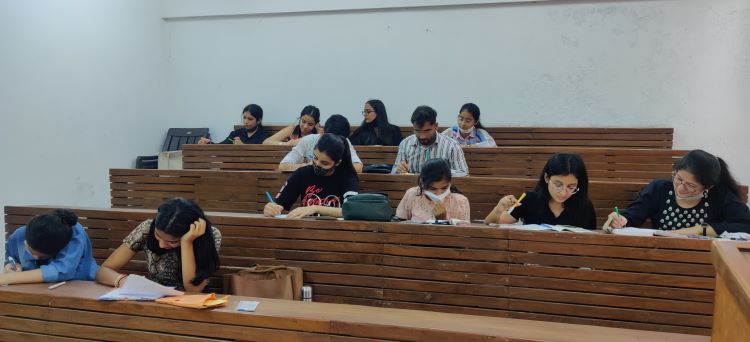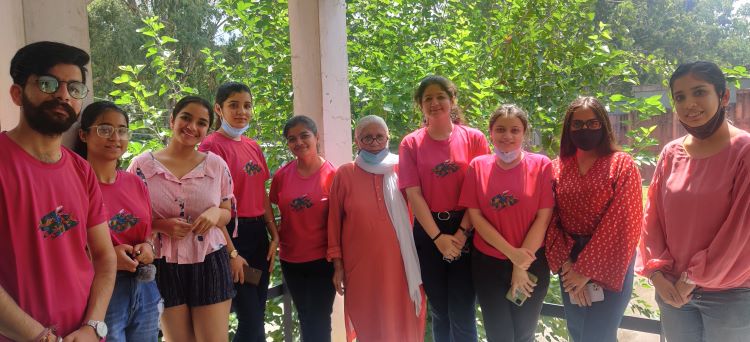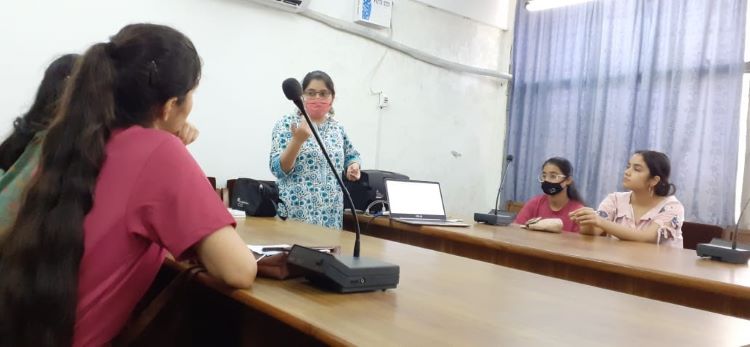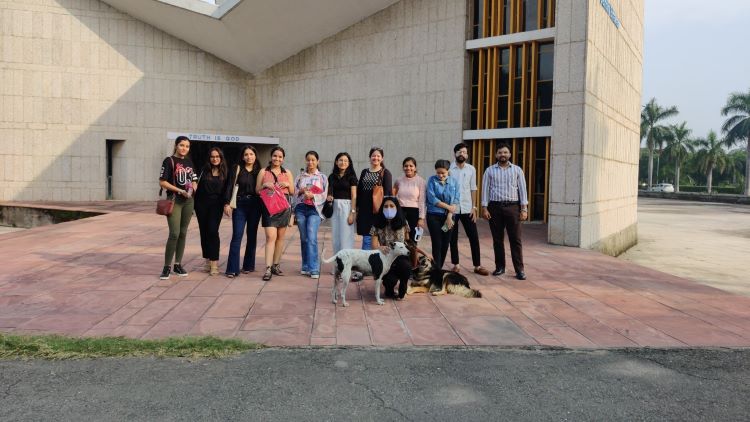PRIA, in collaboration with the Department of Gandhian and Peace Studies, the University of Punjab organised two days (23rd and 24th August) training with the YnD Fellows as part of their 6-month fellowship program. YnD fellows met each other physically for the first time at the University of Punjab after virtually engaging for over two months.
Day 1 began with an interactive session where fellows learned more about each other and drew each other's character sketches. They shared the traits they had associated with each other based on the limited interactions they had virtually. This activity helped fellows in developing bonds with each other and learn ways in which they can support each other during the fellowship journey.
Moving forward, the fellows drew the River of their Lifes. River of my life is an activity in which fellows map their life journeys and try to acknowledge the influences and contributions of various significant others in their life. River of my life was the first session that helped the fellows in answering the question of ‘Who am I’?

The learning process in Self and Identity is based on the principles and values of DiEL, of understanding everyday democratic values of co-operation, plurality, tolerance, empathy, equality, and respect. The day was overwhelming and ened with a lot of self-introspection and reflection!
Day 2 started with a session by Dr. Pam Rajput. Dr. Rajput is an Indian academic turned internationally renowned activist who has been engaged in the women’s movement since the mid-70s both in India and internationally. She has helped organize and was the first Speaker of a “Women’s Parliament” that brought together over 500 women leaders from across India. She is also the founder and Director of the Centre for Women’s Studies & Development and the Head of the Department of Political Science at Panjab University. Dr. Rajput started her session by asking fellows what they understood by democracy and then connected it with gender. She shared her journey of creating spaces for women and empowering them to practice their individual and collective agencies. Democracy in its true form can only be practiced and sustained when women, and other minority genders are not excluded or marginalised. Programs like YnD fellowship can support young people in learning ways to address patterns of exclusion, structural barriers, stereotypes, and unequal power relations. This discussion was very inspiring and encouraging for the fellows, as they starting reflecting upon ways in which they can lead changes in their everyday lives.

The next in line was the session on Democracy in Everyday Life. The purpose of the session was to support fellows in understanding the effective functioning of democratic principles and values and enable them with tools to practice Democracy In Everyday Life. It was an engaging and interactive session in which the fellows discussed the ideas of inclusion, rights, tolerance, respect for opinion, platforms for safe conversations through everyday life examples.

In the latter half of the day, they discussed their initial plans for their social action projects and how can they implement them with their local communities.

Designing and implementation of social action projects is an important component of YnD Fellowship. In this module, fellows identify problems, plan and implement actions, using participatory methodologies, within colleges, communities, workplaces, and beyond. The aim is for them to critically engage with communities they identify with through thoughtful, cooperative, participatory, and responsible action.
Stay tuned to know more about their journey!